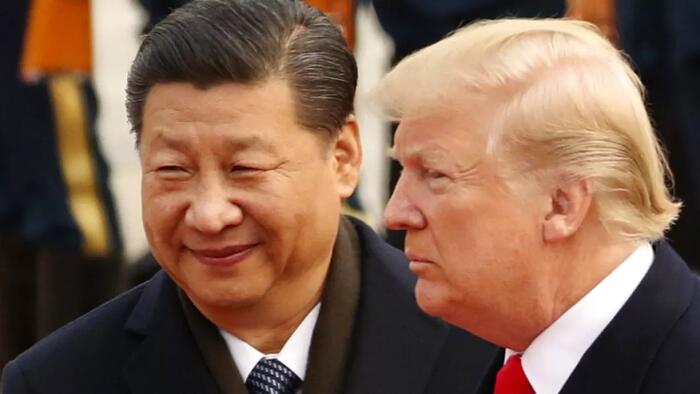Beijing’s response to Donald Trump’s election victory was marked by caution and a keen eye on future relations. The Chinese Ministry of Foreign Affairs expressed hope that the incoming Trump administration would adhere to principles of mutual respect and peaceful coexistence in managing Sino-American relations. This indicates some optimism for a fresh chapter in bilateral ties, contingent upon taking advantage of the opportunities presented by the election outcome. The Chinese spokesperson, Mao Ning, remarked on the U.S. election being a domestic affair, expressing respect for the American people’s choice while also avoiding speculation on potential policy shifts, particularly concerning tariffs. Her refusal to comment on Trump’s election promises, which included raising tariffs on Chinese imports, reflects Beijing’s strategy of maintaining a measured public stance in uncertain diplomatic waters.
In contrast, Moscow’s reaction to Trump’s victory echoed a mix of resignation and minimal optimism. With Russian-American relations at a historical low, Kremlin spokesperson Dmitry Peskov acknowledged that the relationship could hardly decline further. His comments suggested that while relations are strained, there remains a sliver of hope for improvement under Trump’s leadership. Peskov’s ambiguous remarks about whether President Vladimir Putin would congratulate Trump underscored the cautious stance from Moscow, emphasizing the complexities of U.S. involvement in global conflicts as detrimental to Russian interests. Yet, he highlighted the possibility for a shift in U.S. foreign policy, contingent upon Trump’s actions in office.
Notably, Russian Foreign Ministry spokesperson Maria Zakharova adopted a somewhat positive interpretation of Trump’s victory speech, which emphasized addressing internal American issues rather than projecting hostility toward others. Her comments suggested a recognition of national sentiment that could resonate in U.S.-Russia dynamics. Additionally, Dmitry Medvedev, former Russian president, provided a sharper critique of Trump’s approach, focusing on his fiscal conservatism and potential reluctance to finance allies or international projects—an observation that aligns with Trump’s history of questioning U.S. military and financial commitments abroad.
This pattern of cautious optimism amidst historical adversities marked the broader international implications of Trump’s leadership. Trump’s campaign platform included promises to pivot U.S. foreign policy, emphasizing a move toward ending foreign conflicts rather than engaging in new military endeavors. The election of Trump signals a potential shift in priorities, particularly concerning military aid, which he has openly critiqued in relation to Ukraine. Trump’s assertions that he would not initiate wars and sought resolutions for existing conflicts have found resonance with certain factions within Russian political circles.
On the campaign trail, Trump was vocally critical of Ukraine’s leadership and the extensive U.S. financial commitment to its defense. He characterized the Ukrainian President Volodymyr Zelensky as overly persuasive in seeking aid from the U.S. and suggested that the trend of open-ended American financial support would be reversed under his administration. This reevaluation could have significant implications for U.S.-Ukraine relations as well as the broader security framework in Europe, potentially altering the dynamics of Western support for Ukraine against Russian aggression.
In conclusion, the reactions from both Beijing and Moscow to Trump’s electoral victory highlight a landscape of cautious diplomacy, characterized by guarded optimism amidst historical tensions. While China hopes for constructive engagement and reciprocal respect, Russia seems to be preparing for a recalibration of its strategic objectives in light of a potentially changeable U.S. foreign policy. The evolving geopolitical narrative will hinge not only on Trump’s immediate actions upon taking office but also on how these shifts influence existing alliances and conflicts on the global stage, particularly in relation to NATO and the European security apparatus. As Trump prepares for his new term, both adversaries and allies will be watching closely to ascertain the direction of U.S. foreign policy and its ramifications for international relations.

